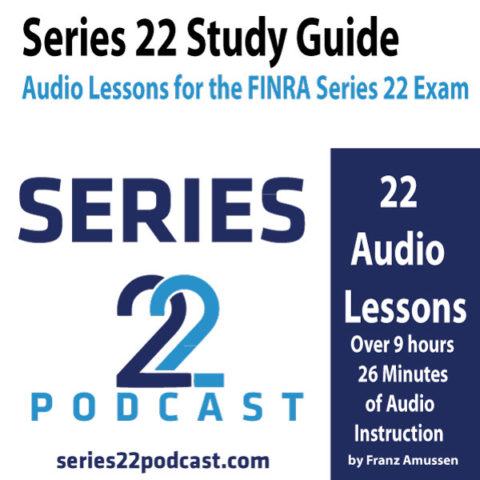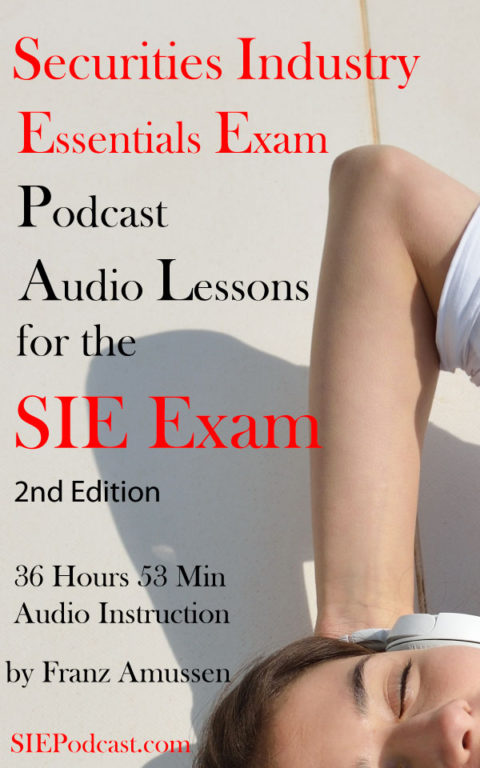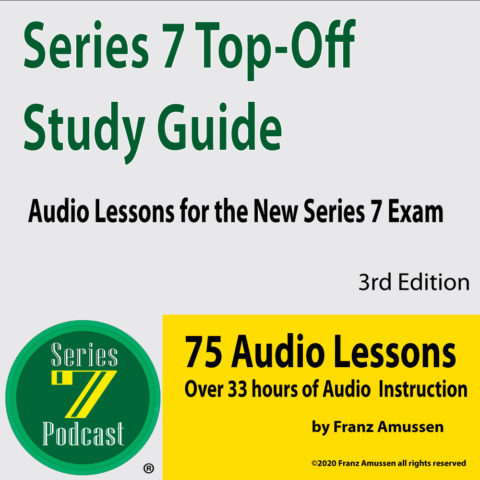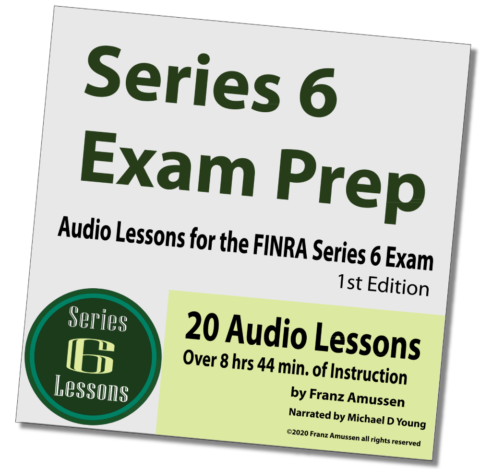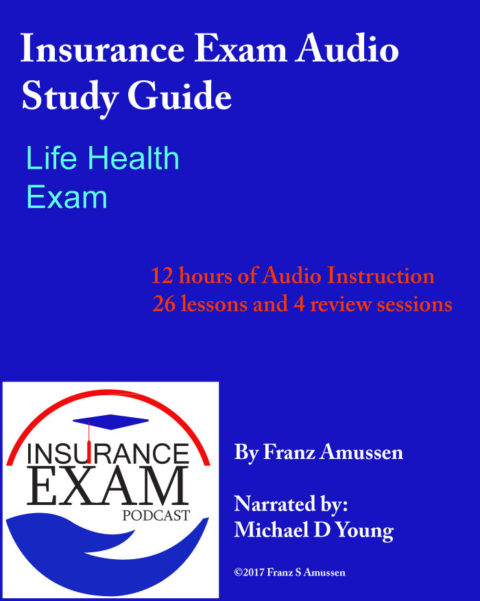Lesson 10 Rule 144:
Rule 144 regulates how restricted securities can be sold. It sets down the holding period, the amount of the security that can be sold, the filing procedures, and the method of sale.
Control securities are those owned by people who have 10% or more of the company’s stock. There is no holding period for these securities. If these securities are held for less than six months, however, the holder must return any profit to the company.
Restricted stock can be obtained through private placements and must be held for six months, after which it may be sold.
Under this rule, securities may be sold four times per year and you must fill out what is called a Form 144 in order to do so, unless the orders are for 5,000 shares or less and do not exceed $50,000. If the owner of restricted stock dies, that person’s estate does not have to worry about the restrictions of rule 144.
Rule 144A allows a person to resell restricted stock to qualified institutional buyers. These are companies or other institutions that have at least $100 million of investments. It is the broker-dealers responsibility to make sure the institution fits the requirements as a qualified institutional buyer. They can look at the institution’s financial statements in order to make sure it meets the requirements.
To qualify for the 144A exemption, the QIB must be buying the securities for its own account or for the account of another QIB. Some kinds of securities are not eligible, such as securities from registered investment companies, securities like those listed on an exchange, and some warrants and convertible securities. If you use this exemption, you have disclose that you are using it.
Sometimes companies want to sell securities to raise money without making them available to the general public. They can sell to a group of private investors through private placements. This is known as a PIPE transaction (Private investment in a Public Equity). This can be done in the form of common stock, rights, warrants, etc. There are several advantages that company’s enjoy by doing this, such as smaller transactions costs, increased institutional ownership, and quicker closing of transactions.
A reverse merger is sometimes known and an alternative public offering (APO), and is an alternative to a tradition IPO. In an APO a private company either acquires or merges with that company that has already gone public as a way of going public themselves.
Regulation S applies to companies who offer their securities only to foreign investors. Under the Securities Act of 1933, they can only get a regulation S exemption if they do not have offerings in the United States and they cannot distribute ads or any other literature in the United States. There is a compliance period, usually about six months, in which these securities cannot be resold to domestic investors.
Regulation A helps small companies bypass the usual full registration process, and thus save money. It allows for up to $50 million to be raised by a company in a 12-month period without having to complete a full registration. They do have file a shorter notice of sale, known as a 1-A form with the SEC. They still have to undergo the same cooling off period as with a full registration.
Crowdfunding is another way for companies to raise money that is an alternative to traditional methods using securities. A crowdfunding portal must be registered with the SEC and must be run by a FINRA member firm. Those engaging in crowdfunding must still offer educational materials about what is is being offered to potential investors that talks about the possible risks involved. Any shares purchased in this way cannot be sold for at least 12 months.
Rule 145 means that shareholders have to approve any merger or reorganization that happens within a company. Stockholders have to be given all the details of the transaction in advance.
Rule 147 means that offerings that only happen in a single state can be exempt from SEC regulation and instead are regulated by the state’s own regulating body. The organization must have their principal place of business in that same state. All the purchasers have to be located in the state, and purchasers have to agree not to resell their securities out of state for at least six months.
Rule 415 allows the issuer to register securities to be sold of its own benefit, or to benefit a subsidiary. This has to happen within a two year period.
Rule 405 means that certain issuers may be allowed to use a streamlined process. Well-known seasoned issuers (WKSI) may take advantage of this. These are users that have at least $700 million worth of voting and nonvoting common equity that has been issued within the last three years, or $1 billion in nonconvertible securities.
Ineligible issuers are those who are not current with filing their reports with the SEC. These include companies that have filed for bankruptcy in the last three years, blank check companies, shell companies, etc.
Companies are allowed to issue forward-looking statements to their clients, which are statements predicting what might happen in the future, such as a projection of future sales. It is better however to stick to standard factual business communication, which as to be based on provable facts and not speculation. If you include speculation in your prospectus, you have disclose that it is speculation.
A DPP roll-up transaction happens when two or more limited partnerships wish to combine their operations and assets. Investors have to approve of the merger and have to be told the details, including what risks they might incur by merging.
If you are ready to get serious and want the full series of Series 22 Audio Lessons…
In order to take the Series 22 Exam you must also Pass the SIE Exam
We also have audio lessons for the following exams:
Podcast: Play in new window | Download


